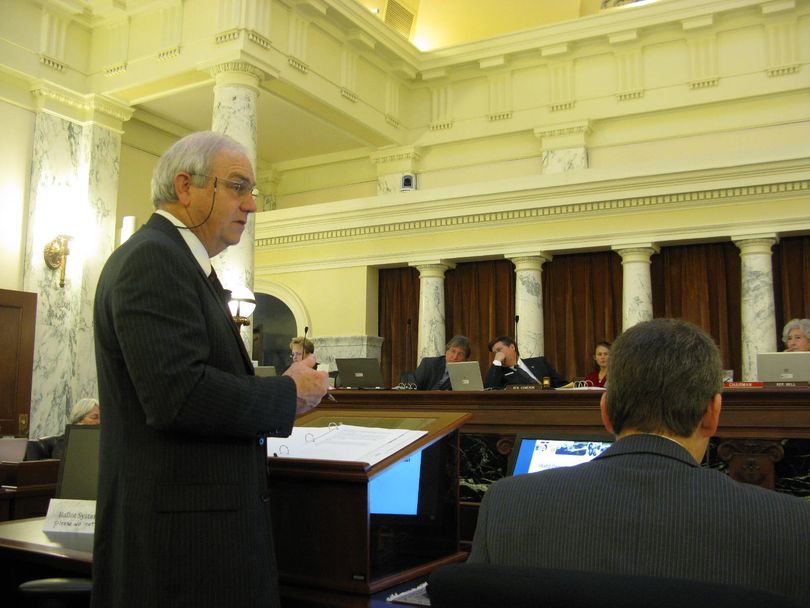Fish & Game says ‘fee lock’ plan could stabilize its revenue in two to three years

Idaho’s state Department of Fish & Game gets no state general tax funds, instead relying entirely on hunting and fishing license fees, federal funds and grants; 51 percent comes from license and tag fees. But, Fish & Game Director Virgil Moore told the Joint Finance-Appropriations Committee, “Like the rest of the economy, our license revenue took a hit in 2008 and it’s just now starting to pick up.” To make up for the shortfalls, Fish & Game has been leaving vacant positions open for six months, reducing fish stocking and taking other steps. “Idaho’s population continues to grow faster than the proportion of people who purchase licenses, which directly fund all of our wildlife management activities,” Moore said. “The challenge for Fish & Game is to address this … without increasing fees beyond the means of Idahoans.”
Non-resident elk and deer tag sales grew in 2013 for the first time in five years. “It’s the start of digging out of that hole, but we’re 35 to 40 percent below where we were in 2008,” Moore said. Resident fees haven’t been raised since 2005; non-resident fees were raised sharply in 2009, just as the economy dived. “We followed the economy down,” Moore said. “We’ve seen similar declines in some other western states, specifically Montana and Colorado.” Sen. Dan Schmidt, D-Moscow, questioned whether private “shooter bull” operations have cut into Idaho’s non-resident elk tag and hunting license sales. Moore responded, “I don’t believe it is affecting our revenue situation in any large degree. Almost all the information we have is the decline in our non-resident participation is related to declines in elk herds, the presence of wolves and the economy. We raised the price of non-resident tags in 2009 at the same time the economy collapsed.”
He said to address the situation, Fish & Game has come up with its “fee lock” proposal. “While the majority of Idahoans consider themselves hunters and anglers, not everyone buys a license every year,” Moore said. About 30 percent do, making them “our most valuable customers.” So the plan calls for an increase next year of between $1 and $6 in resident license and permit fees, but those who buy licenses in 2014 would be able to “lock in” their 2014 rates in 2015, and every subsequent year – as long as they continued to buy every year. That, he said, would provide “an incentive to buy every year and avoid paying higher fees.”
Legislation to allow discounts for the “locked in” fees already has been introduced in the House; introduction of the fee-increase bill is pending. The department also is proposing a marketing campaign next year to enhance both resident and non-resident license and tag sales, with a $200,000 price tag. Sen. Sheryl Nuxoll, R-Cottonwood, asked, “Why don’t you just rearrange your existing budget to include a marketing program?” Moore said the department wants to be transparent and have a line item identifying it. “We want to be right up front about what we’re doing,” he said.
Nuxoll said, “There’s a lot of opposition to that part of your budget. I think as good PR, it would have been a good idea to have done that in the way I suggested.”
After the budget hearing, Moore said, “The sportsmen groups I’ve talked to get it, that this is not a bad use of their funds. We can stabilize our revenue by getting people to buy their licenses more often.” Moore said he’s anticipating that the “fee lock” program and marketing efforts will get the department’s license revenue back up where it needs to be to fund programs within two to three years. “I’m anxious to get started on it,” he said.
